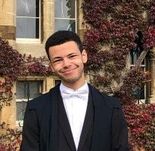|
Many states use domestic restrictions and a variety of controls to keep refugees away from their communities. However, it is clear that governments around the world welcome some refugee groups with open arms, while blocking others or treating them poorly. Selective sovereignty, then, may be defined as the measures used to regulate the entry, exit and conditions of residence of specific groups of foreign asylum-seekers and refugees.
Perhaps the most familiar example is that of the so-called Haitian-Cuban syndrome. During the Cold War, the United States welcomed Cuban refugees but offered a much colder reception to Haitians. This selective treatment of refugees, however, is not unique to the US. Until the early 1990s, India gave more far-reaching rights to Tibetan refugees than those which they provided to Sri Lankan Tamils and Bangladeshi Chakma refugees. In 1980s Latin America, there was a clear discord between the treatment of Salvadoran and Nicaraguan refugees in Costa Rica. George W Bush’s ‘War on Terror’ – The Aftermath of 9/11 In the aftermath of the 9/11 terrorist attacks in New York, the Bush administration enacted a policy of ‘selective sovereignty’ to support its attacks on Afghanistan and Iraq and to legitimise its intervention in nations thought to harbour terrorists. In November 2002, the Department of Justice introduced the National Security Entry-Exit System (NSEES) which required that male citizens aged sixteen and over from designated countries who entered the US on temporary visas before specified dates were required to register, in-person, at the offices of the Immigration and Naturalization Service (INS). Initially, the NSEES was applied to Iran, Iraq, Libya, Sudan and Syria. Since then, the list has grown to contain twenty-five nations. Almost all are predominantly Muslim. This fits Stephen Krasner’s notion of ‘organised hypocrisy’ whereby long-standing norms are abandoned for the sake of some ‘higher principle’. The war on terror, then, was justified by the aim to protect ‘national security’ from a perceived transnational menace (the global terrorist network) but, in so doing, the state waging war, and those which support it, exempt themselves from their expected norms. Ukrainian Refugees – Denial of Black Ukrainians But we must not think that the philosophy of selective sovereignty exists, and remains, in the past. In March 2022 Nigeria’s government condemned reports that its citizens, as well as those of other African nations, had been stopped from leaving war-torn Ukraine. Isaac, a Nigerian man trying to enter Poland, said that border staff told him they were ‘not tending to Africans’. Osemen, also from Nigeria, tried to board a train in Lviv to take him to the Polish border but was told that only Ukrainians were permitted to board. There were reports also that Ukrainian police officers chased African refugees and hit them with sticks. According to the Nigerian President, Muhammadu Buhari, there were approximately 4,000 Nigerians in Ukraine. More generally, in 2020 almost 20% of all foreign students in Ukraine were from Africa. Medicine is a popular choice among these students, attracted to Ukraine due to its deep ties to Africa dating back to the Soviet era and because of its affordable tuition fees. Unfortunately, such solidarity does not appear to have been emulated during the invasion crisis. University student Ruqqaya, also from Nigeria, was studying medicine in Kharkiv when the city was attacked. She had to walk 11 hours overnight before she arrived at the Medyka crossing with Poland. She was shocked by what she saw when she arrived. "When I came here there were black people sleeping on the street" while she watched buses full of people, whom she described as white, were allowed through the border checkpoint. Only a handful of Africans were chosen from the queue. After waiting for many hours, she finally reached Warsaw and managed to fly back to Nigeria. Another medical student took to Twitter to express her frustration. After walking more than 12 miles and reaching Poland, she and her group were told that hotel and accommodation was ‘only for Ukrainians’. Acknowledging the gravity of the issue, Ukraine’s foreign minister tweeted: ‘Ukraine’s government spares no effort to solve the problem. Africans seeking evacuation are our friends and need to have equal opportunities to return to their home countries safely.’ Responding to this situation, Nigerian President Buhari stated: ‘All who flee a conflict situation have the same right to safe passage under the UN Convention, and the colour of their passport or their skin should make no difference’. But the problems don’t stop once ethnic minority refugees have fled Ukraine. It is reported that Polish nationalists, dressed in black, have sought out non-white refugees at Przemyśl train station in Poland and have brutally attacked them. According to the police, three Indian nationals were beaten up by a group of five men. One of them was left hospitalised. This extremist group have also been heard chanting: ‘Przemyśl always Polish’ and ‘Go back to the train station! Go back to your country’ as trains carrying the few non-white refugees permitted to board have arrived in Poland. Sara, from Egypt, a student in Ukraine recounts: ‘These men came and started to harass a group of men from Nigeria. They wouldn’t let an African boy go inside a place to eat some food. Then they came towards us and yelled: ‘Go back to your country.’ However, other African nationals have suggested that they were treated fairly in Poland, and that much of the racial abuse took place on the Ukrainian side of the border. ‘They seem so like us’: The underlying patronisation of Western media outlets The selective sovereignty witnessed, apparently, on both sides of the Ukrainian-Polish border may be compared to the rhetoric certain media outlets have used in as the Ukraine crisis has unfolded. The Arab and Middle Eastern Journalists Association, for instance, has condemned some aspects of reporting on Ukraine, specifically how journalists have related it to experiences in the Middle East. ‘[It] ascribes more importance to some victims of war over others’. In a CBS News report in late February, a reporter said: ‘But this isn’t a place, with all due respect, like Iraq or Afghanistan, that has seen conflict raging for decades. This is a relatively civilized, relatively European — I have to choose those words carefully, too — city, one where you wouldn’t expect that, or hope that it’s going to happen’ On Al Jazeera English too, a reporter told viewers: ‘What’s compelling is, just looking at them, the way they are dressed, these are prosperous … I’m loath to use the expression … middle-class people. These are not obviously refugees looking to get away from areas in the Middle East that are still in a big state of war. These are not people trying to get away from areas in North Africa. They look like any European family that you would live next door to’. Such language indicates that some refugee groups are more important, and thus have more value, than others. A journalist in The Daily Telegraph wrote: ‘They seem so like us. That is what makes it so shocking. War is no longer something visited upon impoverished and remote populations. It can happen to anyone.’ Meanwhile, a reporter for the French news channel BFM TV said: ‘We’re not talking here about Syrians fleeing the bombing of the Syrian regime backed by Putin, we’re talking about Europeans leaving in cars that look like ours to save their lives.’ Final Thoughts Undeniably, life for any refugee is difficult, and their journeys doubtless present their own harrowing challenges. However, the discrimination at the heart of many policies of selective sovereignty is far from a solution. Safety, security, and happiness are what all refugees seek and a lack of resemblance to the host nation should never form an impediment to that refugee’s passage. Why build walls for already isolated groups? Many of the African students who suffered racial bias at the border will go on to be leading doctors, lawyers, and academics. A wall which blocks a refugee’s passage is undoubtedly a way to extinguish the light of bright future. As Nigerian President Buhari put it: ‘All who flee a conflict situation have the same right to safe passage […] the colour of their passport or their skin should make no difference’.
0 Comments
Leave a Reply. |
Author
Aaron is a second year French & Spanish student at Oxford University. He researched and wrote this article as part of the Oxford University Micro Internship programme. |

 RSS Feed
RSS Feed

